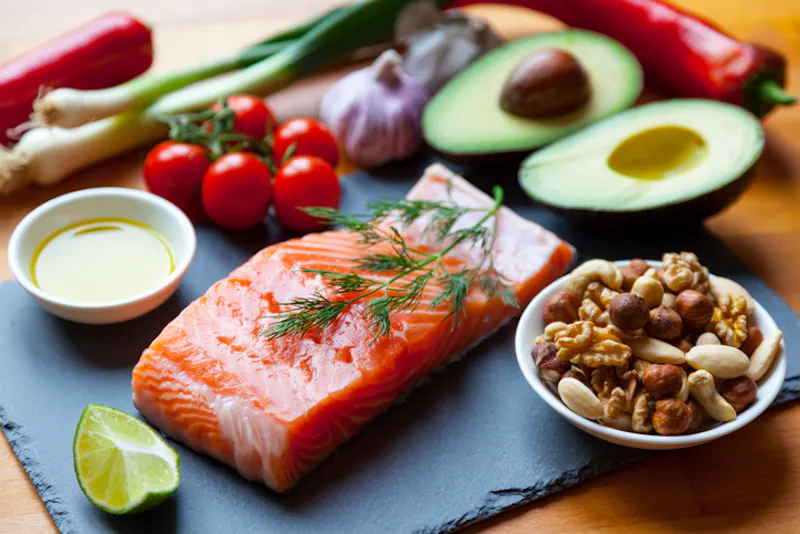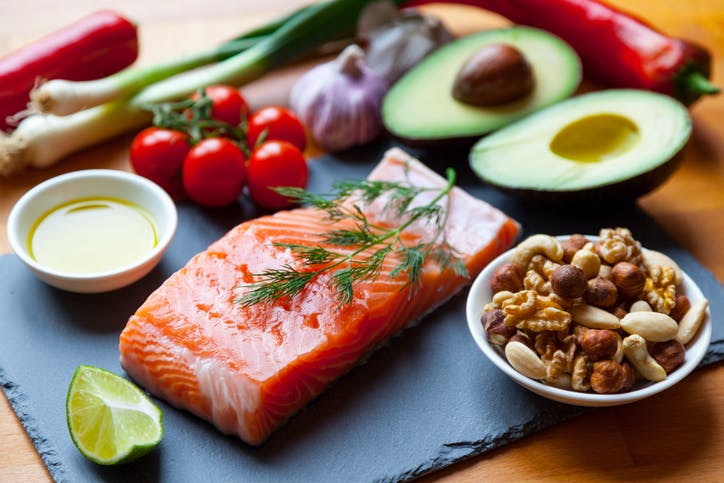Are all fats bad for cholesterol?
What's covered?


Fat and cholesterol are both essential for some bodily functions. But can fat increase your cholesterol levels? And if so, which dietary fats are more likely to affect your health? This article explores the difference between fat and cholesterol, and the effect of different dietary fats on your cholesterol.
What is cholesterol?
Cholesterol has two main components, low-density lipoprotein (LDL) and high-density lipoprotein (HDL). Too much LDL can cause the sticky cholesterol to become lodged on the walls of the arteries, restricting the diameter of the artery itself.
This clogging of blood vessels with fatty deposits and the build-up of plaque is known as atherosclerosis.
You can check your cholesterol levels at home by using a cholesterol blood test.
What is the difference between fat and cholesterol?
Cholesterol and fat are both lipids, but unlike dietary fat, cholesterol can’t be burnt off or used for energy.
A “fat” is any type of fatty compound in biology or chemistry. Fat is an important macronutrient and is needed for several bodily functions, but not all fats in our diets are the same.
Fat, however, can cause your cholesterol to increase depending on the type of fat.
What are the different types of fat?
Saturated fats
Saturated fats are found in many animal products like meat and dairy, but also in some plant sources like palm oil and coconut oil.
Saturated fat has been shown to increase LDL cholesterol more than any other component found in the diet. But, its role in increasing cardiovascular disease risks is widely controversial. Fresh studies haven't shown any real association between the intake of saturated fat and cardiovascular disease.
Instead, high levels of saturated fat increase the levels of LDL cholesterol travelling in the bloodstream, which is a risk factor for cardiovascular disease.
However, what is widely accepted by the medical profession to be bad for health is a subsection of saturated fat known as trans fats.
Trans fats
Trans fats are found in foods like cakes, biscuits, and deep-fried, fatty food. They’re produced from the partial hydrogenation of liquid plant oils in the presence of heat, a vacuum or a metal catalyst.
Alternatively, they can also be found in meat and dairy products naturally. Particularly in sources from ruminants, animals like cows are able to ferment plant-based foods to gain the nutrients they require before digestion.
Unsaturated fats
Unsaturated fats are mostly found in oils from plants and fish and can be divided into monounsaturated or polyunsaturated fats.
Unsaturated fats can lower the levels of bad cholesterol circulating in the blood, protecting against heart disease. Whole grains are another good example of foods that can help to reduce saturated fat intake. Grains like whole-wheat bread, brown rice, cereals, and oats are all good examples and also key ingredients of the Mediterranean diet.
How does fat affect your cholesterol level?
A diet high in saturated and trans fats can interrupt the balance of good and bad cholesterol. For example, HDL cholesterol is required to remove excess cholesterol from the tissues and transport it to the liver where it can be excreted in the faeces as bile. When there is continuous consumption of trans fats but there is an increase in LDL cholesterol and a reduction in the good cholesterol needed to take away the excess.
Refined carbohydrates, found in highly processed foods like biscuits, crisps, and fizzy drinks, can also increase your HDL cholesterol.
Saturated and trans fats should be swapped for:
- polyunsaturated fat
- sunflower oil
- nuts
- seeds
- oily fish
- monounsaturated fats
- rapeseed oil
- nuts
- avocado
- sunflower oil

How to lower your cholesterol through diet
More research is needed to back up the current UK guidelines with reference to the amount of fat we should eat as part of our diet. But it's always a good idea to ensure a healthy, balanced diet.
Eating a diet similar to the one consumed in the Mediterranean has biologically been shown to lower levels of LDL cholesterol. Yet, scientists are still not completely sure what elements of the diet contribute to its effectiveness.
In summary, although cholesterol is an essential part of our diet needed for a variety of bodily functions, too much bad cholesterol can leave us susceptible to serious health complications like heart disease and strokes.
Fats particularly saturated fats have been shown to increase circulating levels of bad cholesterol in the blood and in some cases even reduce the good cholesterol needed to remove the excess. Lowering our intake of saturated fats can improve our health and life expectancy.
You can check your cholesterol levels at home by using a cholesterol blood test.